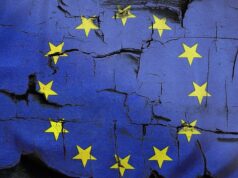
Switzerland will get a tighter gun law according to EU rules: according to the final result of a poll, 63.7 percent voted in favor. The possession of semi-automatic firearms is thus severely limited.
In a referendum, the majority of Swiss voted in favor of tightening arms law in their country. 63.7 percent of the participants voted in favor, 33.6 percent against.
Switzerland can implement EU Directive
The amended law provides, inter alia, that the possession of semi-automatic weapons – with some exceptions, for example, for sports shooters – is no longer allowed. This allows Switzerland to implement an EU directive.
Supporters such as the Swiss parliament and the government had argued that measures similar to those of the EU after deadly attacks in France were needed to ensure strong police cooperation and economic ties with partners in the Schengen area. Although Switzerland is not an EU member, it belongs – like most EU countries – to the Schengen area with open borders. It is linked to the Union through many treaties and has adopted many EU rules.
Sport shooting as a tradition
Opponents of the proposal had argued that it would do little against terrorism. The measures would mainly punish lawful gun owners and enforce an order from Brussels against the rich Alpine country, they criticized.
The shooters, especially the community of interests Schiessen Switzerland (IGS), had vehemently opposed the changes. The IGS spoke of a „disarmament dictates of the EU“. In January, the opponents of the law submitted 125,000 signatures – 50,000 are needed for a referendum. Weapons ownership and sport shooting are a tradition in Switzerland. Veterans of the military were able to take home service weapons after the end of their mission.
Tax law also approved
The Swiss also approved changes in corporate income tax benefits for international companies. So far, so-called status companies, which had their activities mainly abroad, benefited from tax advantages. You now have to pay the same amount in the future as Swiss companies. The Organization for Economic Co-operation and Development (OECD) saw unfair tax competition in the Swiss rules on corporate taxation.



